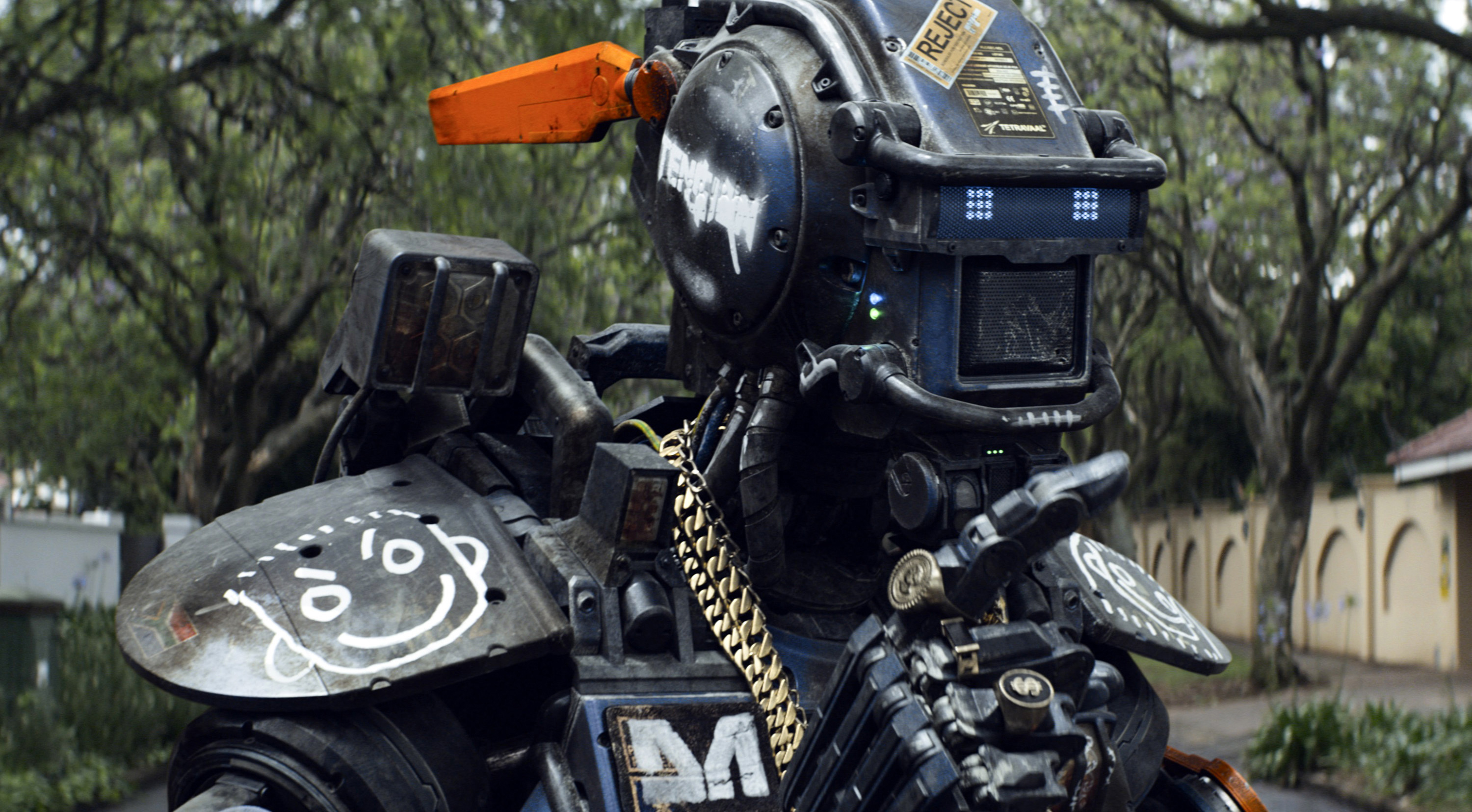“Chappie” is perhaps one of the most complexly bad movies I have seen in a long while.
The film centers around Chappie, a police robot that has been given sentience by his programmer, Deon (Davi Patel). The film tries to achieve this moral conflict by having him taken by a group of criminals at the moment of conception of sentience, the goal of the kidnapping is to rob an armored truck. The movie centers around the struggle for moral influence over Chappie between his creator and the two criminals who more or less become his surrogate parents. The film attempts to illustrate Chappie as a child trying to find his way in the world and gain some sense of morality. Unfortunately, the film falls short in this goal.
Most of Chappie’s problems stem from its terrible pacing, making it impossible for it to tell the story it wants to tell in its time constraint.
This is exemplified in Chappie’s character as a whole. The film isn’t able to get in all the complexity to his character that it clearly wishes it could. The strife within Chappie’s character feels incredibly one-sided. His creator Deon’s influences aren’t present enough to give off the idea that Chappie has an inner struggle for a sense of morality.
This is also hampered by Die Antwoord, Chappie’s immoral influences, having far too much screen time. This effectively makes Deon’s influences fade into the background of the film.
This isn’t to say that Die Antwoord (Yolandi and Ninja) are bad characters, in fact second to only Chappie himself they are the films greatest example of wasted character potential. The fascinating complexity of them that isn’t developed enough is that they are characterized as a loving mother (Yolandi) and an abusive father (Ninja) who are threatened by one of the films true villain’s the Hippo (Brandon Auret).
This brings me to one of the films larger shortcomings, its antagonists.
The Hippo, the character that effectively starts the film off by threatening to kill Yolandi and Ninja if they don’t repay him for a drug shipment gone wrong, his character is so poorly characterized that it’s pathetic. He’s literally shown to be nothing more than a fat, joint-choming thug who serves to do nothing more than start the plot.
This cartooning of antagonist also bleeds into Hugh Jackman’s character Vincent. Although it’s enjoyable to watch him chew the scenery throughout this entire movie, it’s impossible to take him seriously. His maliciousness is so cartoony that he literally has a scene in which he is brutally murdering people and maniacally laughing like he’s a Disney Villain.
This also touches on the overall tonal dissonance of the film.
On one hand, the film wants to be this Robocop-esque, graphically violent social commentary and the other it wants to be an R-rated, Wall-e featuring Die Antwoord. While scenes like Chappie learning to paint are certainly cute, along with scenes like Chappie being brutalized and set on fire by street thugs are certainly tear jerking, there is no transition between these scenes and that hurts the overall tone of the film the most. It just doesn’t feel like it can be cohesive tone-wise within its two hour run time.
The root of all Chappie’s problems as a movie is that it’s a movie. I can’t think of anyway that they would have made a story like this work with such a complex tone and potentially complex characters in its two-hour time limit.
Chappie isn’t simply a bad movie, rather a terribly disappointing one. It’s entertaining, despite its many shortcomings, and it should really be seen for the sake of discussing where it went wrong.
Image Sources
- Chappie Movie Review: Sony Pictures/TNS | Used With Permission

